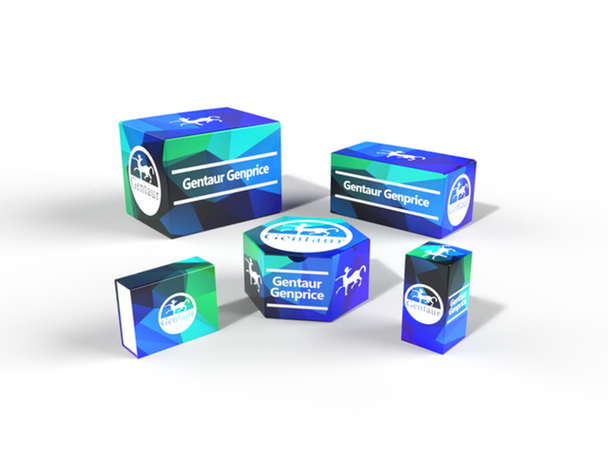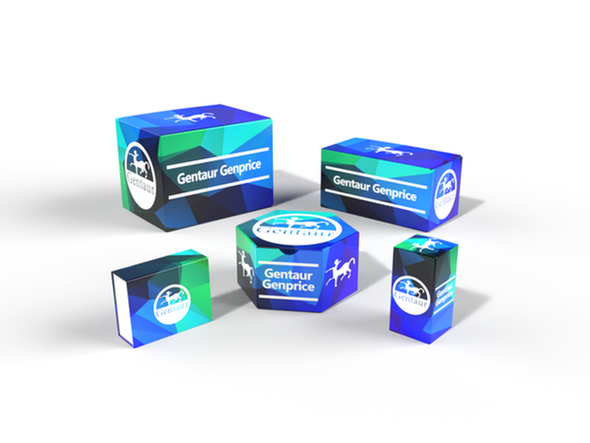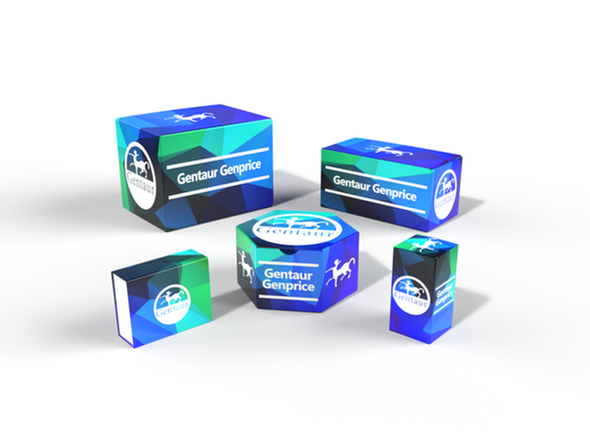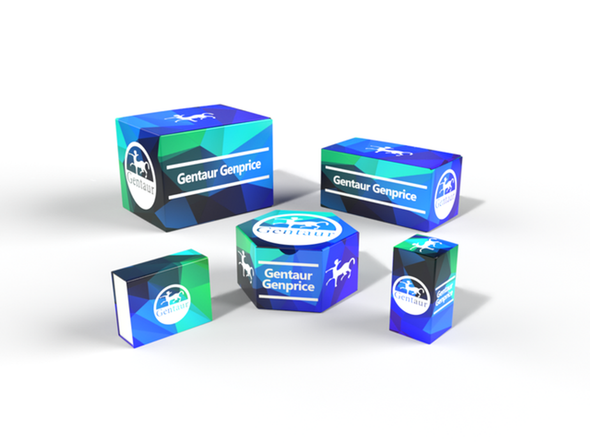Description
CAF-1 Antibody | 55-638 | Gentaur UK, US & Europe Distribution
Host: Rabbit
Reactivity: Human
Homology: Predicted species reactivity based on immunogen sequence: Bovine, Chicken, Zebrafish, Mouse, Xenopus
Immunogen: This CAF-1 antibody is generated from rabbits immunized with a KLH conjugated synthetic peptide between 34-61 amino acids from the N-terminal region of human CAF-1.
Research Area: Other
Tested Application: WB, IHC-P, IF
Application: For WB starting dilution is: 1:1000
For IHC-P starting dilution is: 1:50~100
For IF starting dilution is: 1:10~50
Specificiy: N/A
Positive Control 1: N/A
Positive Control 2: N/A
Positive Control 3: N/A
Positive Control 4: N/A
Positive Control 5: N/A
Positive Control 6: N/A
Molecular Weight: 33 kDa
Validation: N/A
Isoform: N/A
Purification: This antibody is purified through a protein A column, followed by peptide affinity purification.
Clonality: Polyclonal
Clone: N/A
Isotype: Rabbit Ig
Conjugate: Unconjugated
Physical State: Liquid
Buffer: Supplied in PBS with 0.09% (W/V) sodium azide.
Concentration: batch dependent
Storage Condition: Store at 4˚C for three months and -20˚C, stable for up to one year. As with all antibodies care should be taken to avoid repeated freeze thaw cycles. Antibodies should not be exposed to prolonged high temperatures.
Alternate Name: CCR4-NOT transcription complex subunit 7, BTG1-binding factor 1, CCR4-associated factor 1, CAF-1, Caf1a, CNOT7, CAF1
User Note: Optimal dilutions for each application to be determined by the researcher.
BACKGROUND: The protein encoded by this gene binds to an anti-proliferative protein, B-cell translocation protein 1, which negatively regulates cell proliferation. Binding of the two proteins, which is driven by phosphorylation of the anti-proliferative protein, causes signaling events in cell division that lead to changes in cell proliferation associated with cell-cell contact. The protein has both mouse and yeast orthologs. Alternate splicing of this gene results in two transcript variants encoding different isoforms.




![CAF-1 Antibody (N-term) [APR30730G] CAF-1 Antibody (N-term) [APR30730G]](https://cdn11.bigcommerce.com/s-1rdwiq712m/images/stencil/590x590/products/61873/62177/gentaur-genprice__26005.1661610467__29809.1661628092__75433.1661676199__77988.1661684280__64362.1661692443__69337.1661864791.png?c=1)

